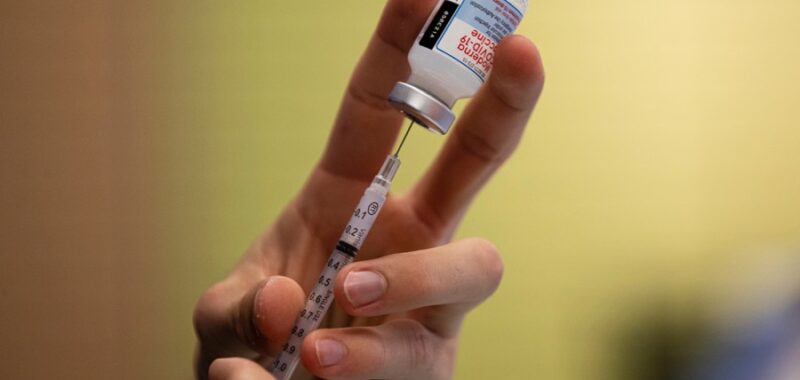
Fewer U.S. adults today say it is important to get children vaccinated than in recent years, according to a Gallup poll published Wednesday.
In the July survey, only 40 percent of U.S. adults said it is “extremely important” for parents to vaccinate their children, a marked decline from the 58 percent who said the same in 2019 and the 64 percent who said the same in 2001.
The drop over the last two decades is similarly stark when tracking the combined percentage who say vaccinating children is either “extremely” or “very” important. Taken together, 69 percent of U.S. adults hold this view now, down from 84 percent in 2019 and from 94 percent in 2001.
The drop in perceived importance of childhood vaccinations is driven largely by Republicans and Republican-leaning independents.
Today, only 26 percent of Republicans and Republican-leaners say it is “extremely important” to vaccinate children — half of the 52 percent who said the same in 2019 and in 2015.
Among Democrats and Democratic-leaners today, 63 percent say childhood vaccinations are “extremely important,” similar to the 67 percent who said the same in 2019 and the 59 percent who said the same in 2015.
The drop represents a dramatic polarization of the issue in recent years.
In 2001, perceived importance of childhood vaccinations was similar across ideological groups, with 66 percent of Democrats/Democratic-leaners saying childhood vaccinations were “extremely important” and 62 percent of Republicans/Republican-leaners saying the same.
Both groups dipped slightly by 2015, but, since then, the two groups have diverged.
The new polling numbers come as experts warn of the dangers of rising vaccine skepticism.
As of earlier this year, at least 8,500 U.S. schools had vaccination rates among kindergartners that were lower than 95 percent, according to a CBS News investigation, which the Centers for Disease Control and Prevention (CDC) views as a standard need to keep students and the community safe.
Meanwhile, diseases that had once thought to be eradicated are now breaking out in children across the country. Last year in Ohio, for example, 85 children, more than 90 percent of whom were not vaccinated, were diagnosed with measles. None died, but almost half were hospitalized. Florida, Pennsylvania and Virginia have also seen outbreaks, as the disease spiked globally.
The poll included phone interviews on July 1-21, with 1,010 adults. The margin of error is +/- 4 percentage points.

